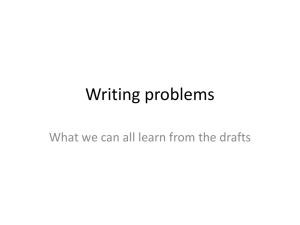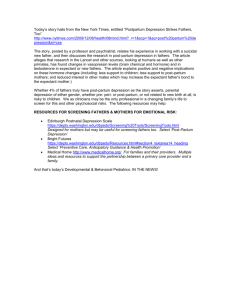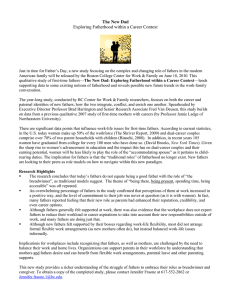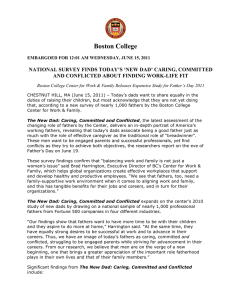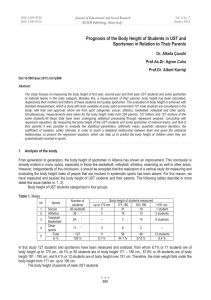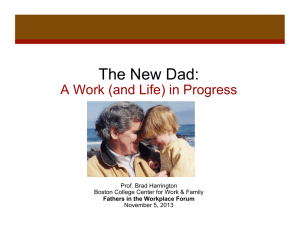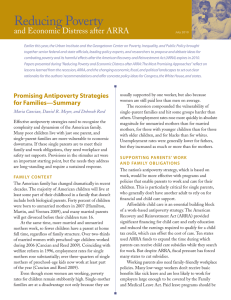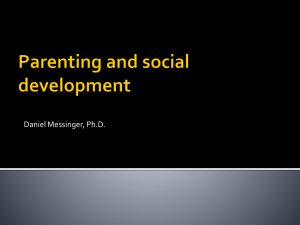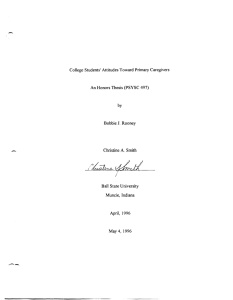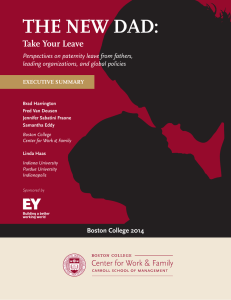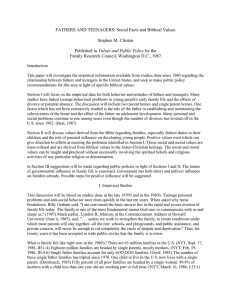Mothers, Fathers and Family Care
advertisement
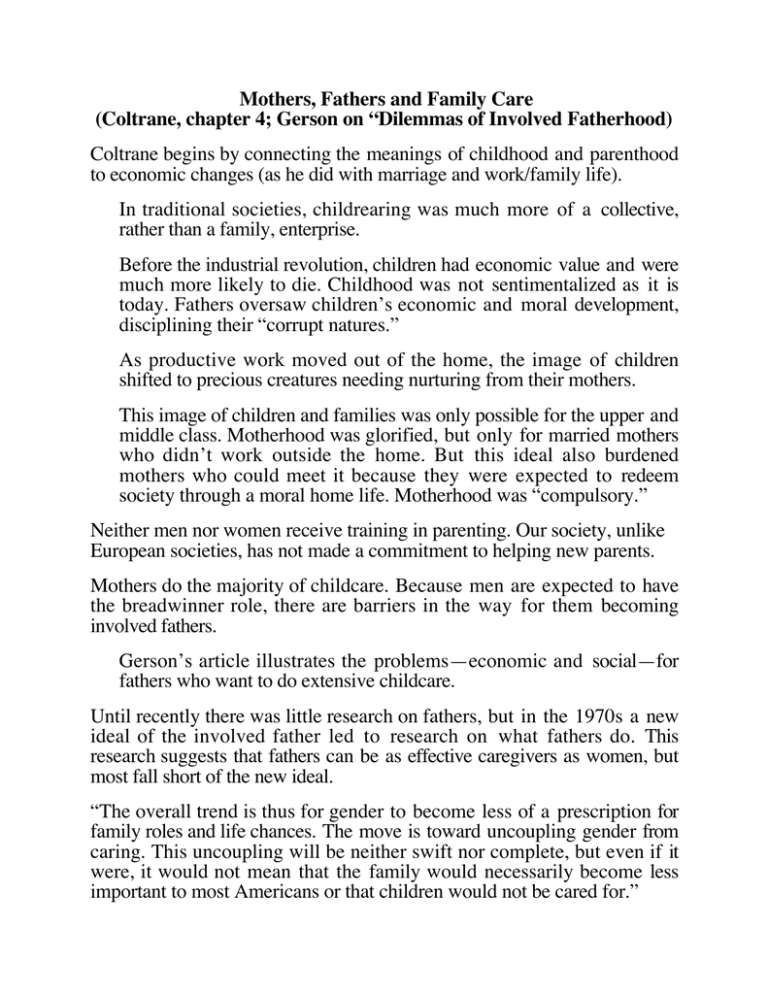
Mothers, Fathers and Family Care (Coltrane, chapter 4; Gerson on “Dilemmas of Involved Fatherhood) Coltrane begins by connecting the meanings of childhood and parenthood to economic changes (as he did with marriage and work/family life). In traditional societies, childrearing was much more of a collective, rather than a family, enterprise. Before the industrial revolution, children had economic value and were much more likely to die. Childhood was not sentimentalized as it is today. Fathers oversaw children’s economic and moral development, disciplining their “corrupt natures.” As productive work moved out of the home, the image of children shifted to precious creatures needing nurturing from their mothers. This image of children and families was only possible for the upper and middle class. Motherhood was glorified, but only for married mothers who didn’t work outside the home. But this ideal also burdened mothers who could meet it because they were expected to redeem society through a moral home life. Motherhood was “compulsory.” Neither men nor women receive training in parenting. Our society, unlike European societies, has not made a commitment to helping new parents. Mothers do the majority of childcare. Because men are expected to have the breadwinner role, there are barriers in the way for them becoming involved fathers. Gerson’s article illustrates the problems—economic and social—for fathers who want to do extensive childcare. Until recently there was little research on fathers, but in the 1970s a new ideal of the involved father led to research on what fathers do. This research suggests that fathers can be as effective caregivers as women, but most fall short of the new ideal. “The overall trend is thus for gender to become less of a prescription for family roles and life chances. The move is toward uncoupling gender from caring. This uncoupling will be neither swift nor complete, but even if it were, it would not mean that the family would necessarily become less important to most Americans or that children would not be cared for.”
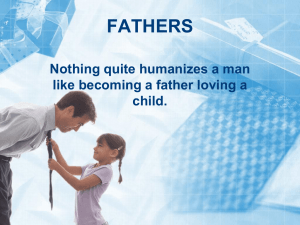
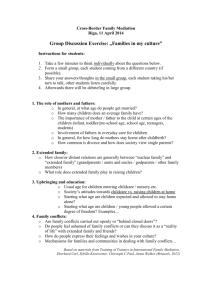
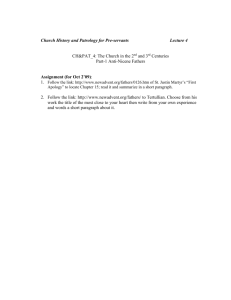
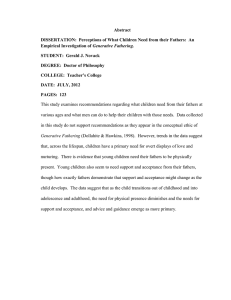
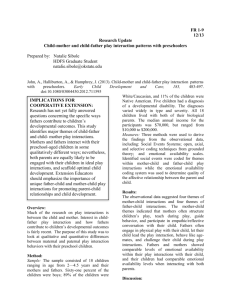
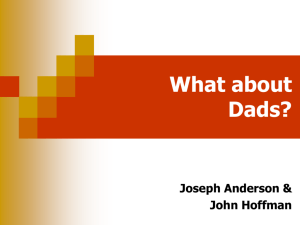

![Children`s mental health is parents` gre[...]](http://s3.studylib.net/store/data/007175392_1-8975cac3d2bf4181e48155b9fb82c0e2-300x300.png)
